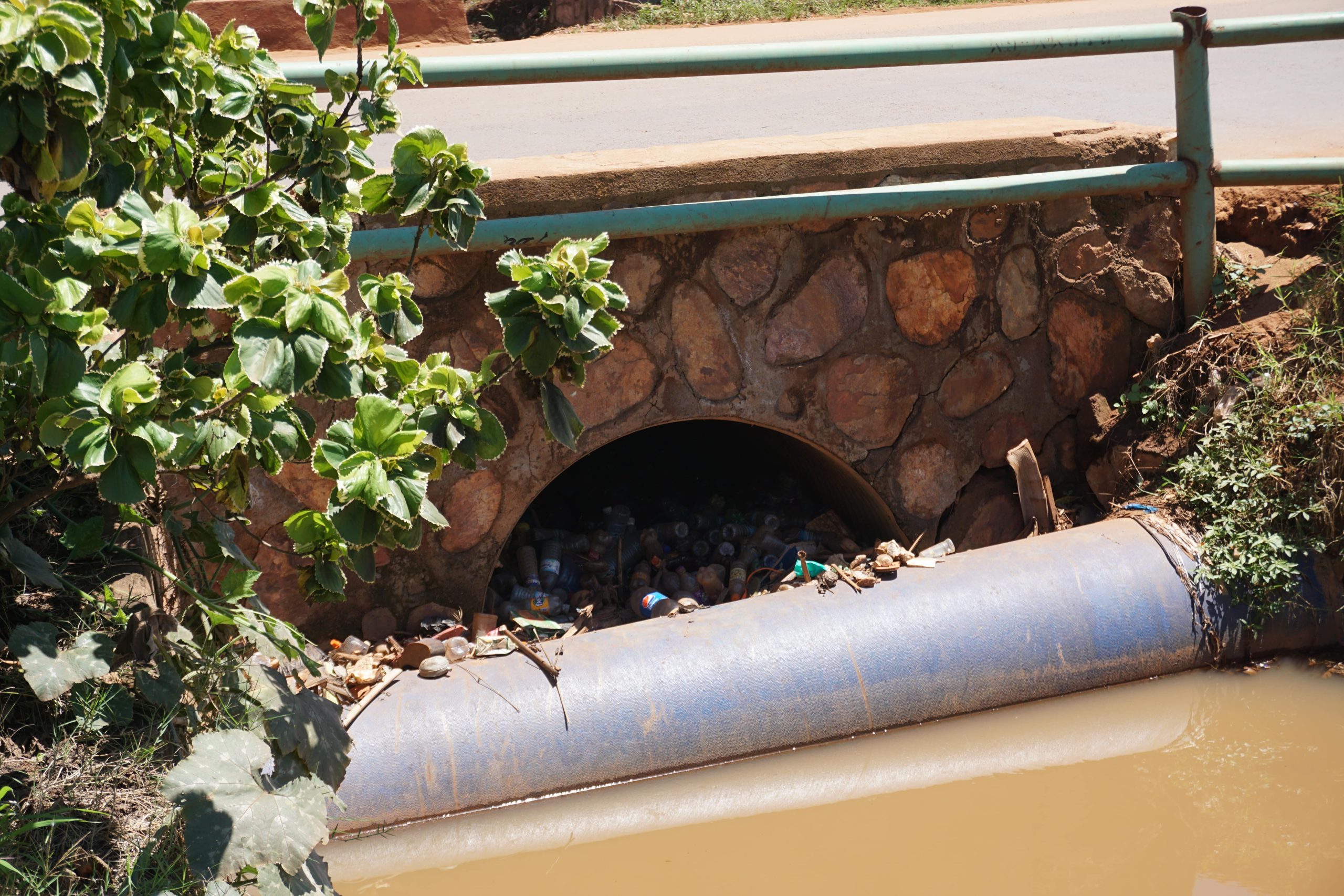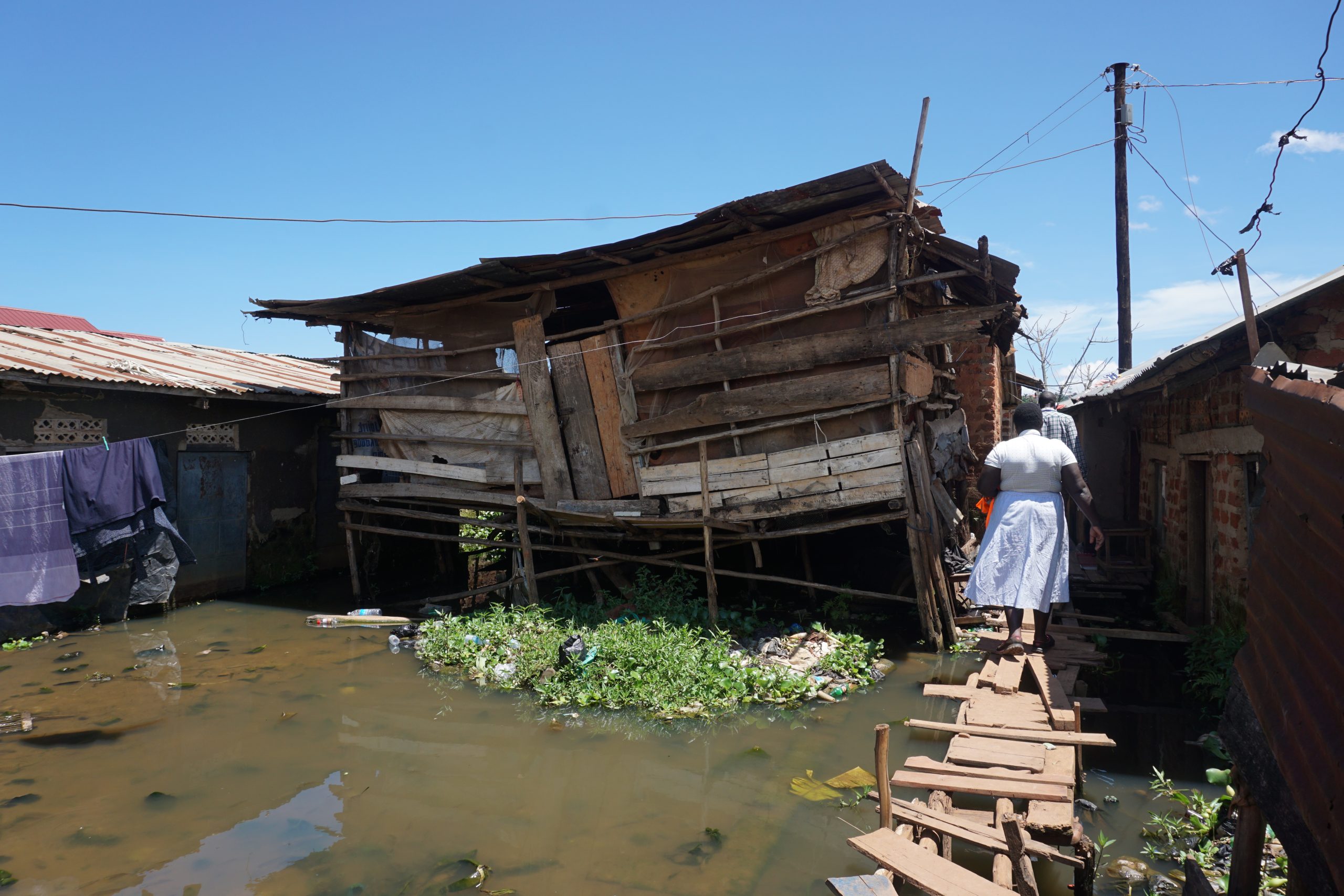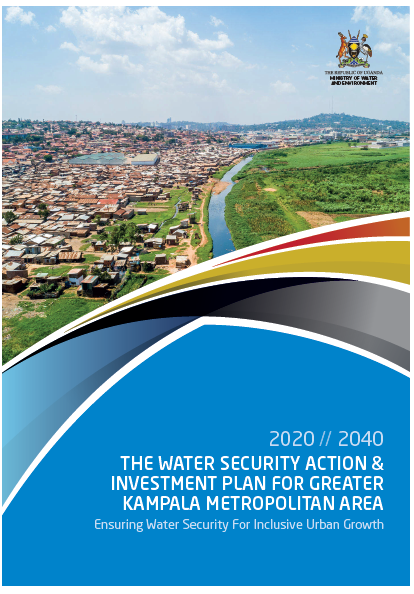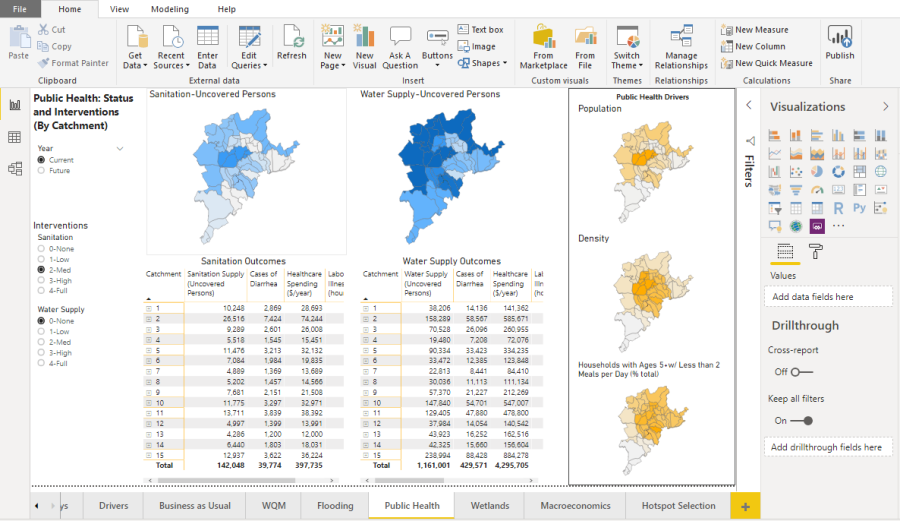The Water Security Action and Investment Plan: Collective planning for a water-secure future in Greater Kampala
“Water Security means having the right quantity and quality of water to meet different needs including industrial, domestic, navigation, energy production. It means making sure that water becomes an opportunity and not a problem,” says Dr. Callist Tindimugaya, Commissioner for Water Resources Planning and Regulation at the Ugandan Ministry of Water and Environment.
Realising water security remains a challenge
In the Greater Kampala Metropolitan Area (GKMA), Uganda’s economic hub, realising water security remains a challenge. Results from the Pressure-State-Impact-Response (PSIR) framework applied in assessing water security threats in GKMA determined an overall water security index of 32% (WSAIP Technical Report, 2020). On average, 68% of GKMA’s population has access to adequate quantities of acceptable quality water; in Western parts, that percentage drops to as low as 23%.
“Water security means making sure that water becomes an opportunity and not a problem”
Dr. Callist Tindimugaya, Commissioner for Water Resources Planning and Regulation at the Ugandan Ministry of Water and Environment
Even though over the last 20 years Uganda has experienced a high rate of economic growth, leading to a reduction in headcount poverty, the creation of around half a million jobs per year, and improved access to basic services, further growth plans and the high population growth and urbanisation rate are prompting severe environmental risks for both the population and the economy. Issues like wetland encroachment, unregulated wastewater discharge and poor solid waste management have had detrimental effects on Uganda’s natural ecosystems.


Unchecked, these developments threaten to reduce wetland coverage to 64 square kilometres, only one third of the 1996 coverage, further deteriorate the quality of GKMA’s only freshwater supply at the Inner Murchison Bay, increase flood risk and subsequent economic costs associated to flooding by 180%, and have 11,000 tonnes of solid waste end up in the environment daily, further exacerbating surface water pollution and flooding.
In response, the Ministry of Water and Environment alongside its partners is taking various measures, including expanding the sewerage network, investing in faecal sludge management, protecting ecosystems including wetlands, forests and lake shores, and improving drainage networks around the metropolis. The ministry is also strengthening inclusive stakeholder participation by enabling stakeholders to take part in the process of identifying problems, causes and the solutions. Most recently, the Ministry, private sector actors, as well as civil society, have engaged jointly in the development of the Water Security Action and Investment Plan (WSAIP) for Greater Kampala Metropolitan Areas (GKMA).
The Water Security Action and Investment Plan: a blueprint response to mitigate water security threats
The WSAIP is a blueprint response to mitigate water security threats arising from increased urbanisation and is intended to improve the evidence base for understanding the status and future trends of water security in Greater Kampala. It has created a space for local organisations and individuals from the public, private and civil society to co-design bottom-up integrated solutions that address multiple problems from multiple perspectives. At the same time, actors acquire the capacity to better understand the problems, identify the solutions needed, and opportunities for them to play a role in establishing a water-secure future. This inclusiveness throughout the whole WSAIP process represents a great asset, as it ensures the plan’s anchoring across all sectors of the metropolitan area.
The WSAIP is championed by the Ministry of Water and Environment in collaboration with Kampala Capital City Authority (KCCA), National Water and Sewerage Corporation (NWSC), Uganda Manufacturing Association (UMA), Uganda Water and Sanitation NGO Network (UWASNET), the Environment and Natural Resources CSO Network (ENR-CSO), and members of the Kampala Pollution Task Force (PTF).

The multi-stakeholder approach along the WSAIP process engaged over 1500 stakeholders across GKMA administrative units, mirroring the geographical boundaries of environmental systems. Relying on administrative units to manage wetlands and river catchments that by nature traverse administrative boundaries, provides for a difficult regulatory environment which often obstructs the ability to make major advancements in water security.
The WSAIP development process involved inception meetings with community leaders and private sector actors to build consensus on the understanding of water security, risks faced and possible solutions to deliver the desired change for a water-secure GKMA.
The importance of the ideation process
A key step was the ideation process, where stakeholders distilled a long list of 67 project ideas into 13 water security investment opportunities, using an evidence-based decision support framework that enabled them to make informed decisions. The Scenario Planning Tool (SPT) provided screening-level information on key water security threats, while the Water Security Investment Model (WaSIM) utilised an Excel-based platform to present information available in the SPT, along with information on the characteristics of selected investment actions. The 13 prioritised investment projects share a vision to rehabilitate wetlands, reduce water and environmental pollution, increase urban forest cover, and increase access to safe water and sanitation services.

Stakeholders acknowledge that water security cannot be attained in the short-term. Dr. Najib Bateganya Lukooya, the Ag. Deputy Director Sanitation and Environment at the Directorate of Public Health and Environment at Kampala City Council Authority (KCCA), intimates that a water-secure Greater Kampala is a long-term goal which requires systematic and consistent planning, investment, and collaboration of all partners. The goal is achievable but requires the buy-in of all key stakeholders. The WSAIP presents a clear roadmap to enable partners to work towards achieving specific targets in the short term and lays out a framework of tools and approaches to support medium and long-term planning for water security.
Water security is achievable but requires the buy-in of all key stakeholders
The challenge, as articulated by Dr. Rose Kaggwa, Director of Business and Scientific Services at NWSC, is getting water security institutionalised. Now that more stakeholders are aware of the relevance of water security, “We can move towards the medium term which is to institutionalise it and get people to get it as part of their day-to-day operations and budgets, then we can move towards the long term – achievement of water security.”
To this end, the WSAIP recommends the creation of a permanent inter-governmental secretariat on water security; investment in research and data acquisition to support evidence-based planning; the establishment of a Water Security Observatory and a framework for the funding and implementation of multi-stakeholder water security investment actions and projects.
Development of the WSAIP lasted from September 2018 to May 2020, with financial support from DFID’s Cities and Infrastructure for Growth (CIG) programme and the German Federal Ministry for Economic Cooperation and Development (BMZ), and through coordination and technical support from GIZ’s International Water Stewardship Program (GIZ IWaSP) as well as the current Natural Resources Stewardship Programme (NatuReS). Efforts to operationalise the WSAIP are ongoing.
For more information on the WSAIP, download this popular version of the plan or the factsheet. Also, follow us on Twitter if you don’t already!
Authors:
Lydia Ngonzi
Technical Advisor, Science and Policy
Natural Resources Stewardship Programme (NatuReS)
lydia.ngonzi@giz.de
Vanessa Tyaba
Technical Advisor, Integrated Urban Planning and Environment
Natural Resources Stewardship Programme (NatuReS)
vanessa.tyaba@giz.de